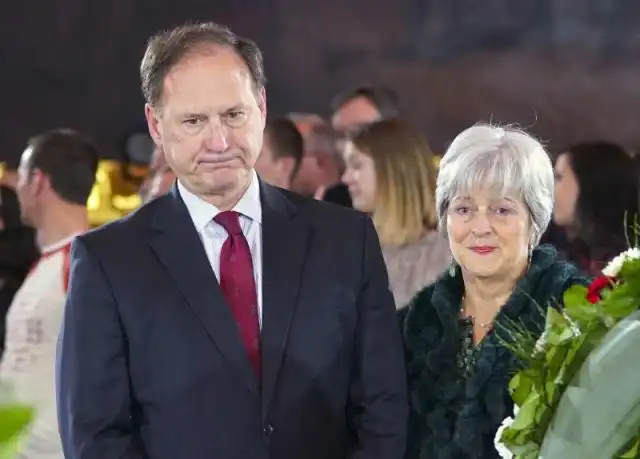Justice Alito home displayed upside-down flag: Symbolism explained
Supreme Court Justice Alito's wife flew an upside-down flag in 2021 amid a dispute, raising concerns about partisanship and ethics.
In a recent revelation, an upside-down U.S. flag flying over the home of Supreme Court Justice Samuel Alito sparked controversy and raised questions about the integrity of the Supreme Court. The flag, a long-standing symbol of distress and protest, was linked to false claims by former President Donald Trump's supporters regarding the 2020 election.
Justice Alito explained that the flag was flown by his wife during a dispute with neighbors, and he had no involvement in the matter. The American flag is traditionally flown upside down as a signal of dire distress or extreme danger, but its use in this context added fuel to the fire of political tensions surrounding the Supreme Court.
The incident involving the flag further fueled concerns about the perceived partisanship of the Supreme Court, particularly as it considers cases related to Trump and the Capitol riot. Calls for recusal from Trump-related cases were made by some Democrats in Congress, but justices have the discretion to recuse themselves voluntarily.
The lack of a specific code of ethics for the Supreme Court has led to questions about the institution's impartiality and trustworthiness. Recent controversies, such as the leaked decision overturning a nationwide right to abortion and allegations of undisclosed trips and gifts from wealthy donors to some justices, have eroded public trust in the Court.
Justice Alito, known for his conservative views, has been at the center of controversial decisions and has faced scrutiny over his impartiality in cases involving Trump. The ethical guidelines for judges regarding recusal in cases where their spouses have a political point of view are ambiguous, leading to debates about the role of personal beliefs in judicial decision-making.
The lack of a mechanism for sanctioning Supreme Court justices has raised concerns about accountability and transparency within the institution. While lower court judges are subject to investigation and review, Supreme Court justices are largely immune from external oversight, except for impeachment by Congress.
The intersection of politics and the judiciary has raised questions about the role of personal biases in judicial decision-making and the potential consequences of perceived partisanship. Maintaining public trust in the Supreme Court is crucial to upholding the integrity of the judicial system and ensuring fair and impartial justice for all.











Comments on Justice Alito home displayed upside-down flag: Symbolism explained